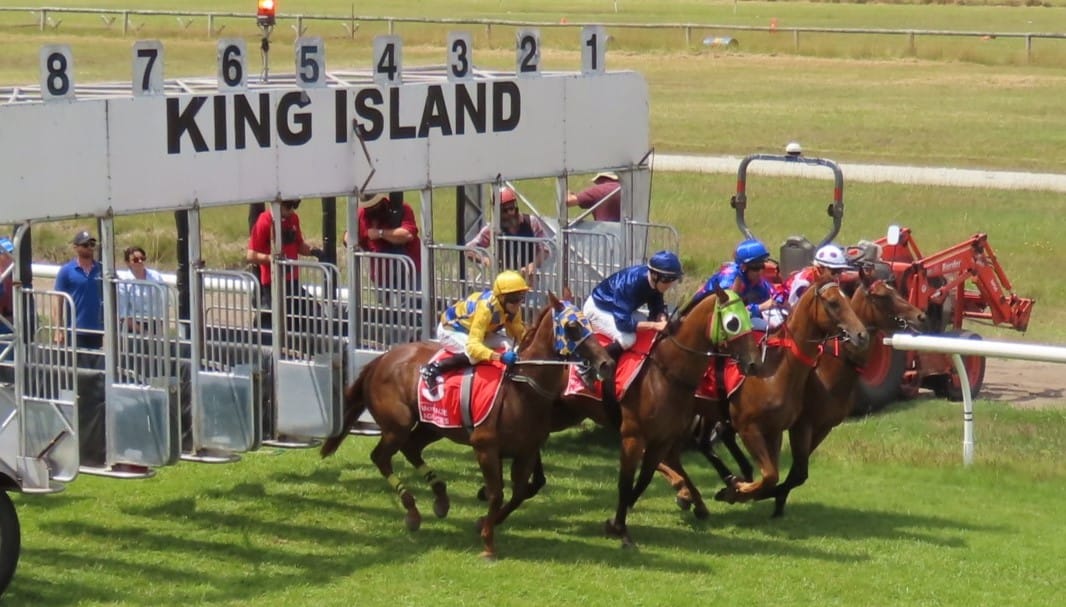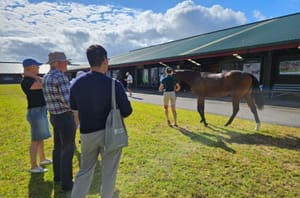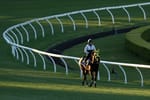For a small band of dedicated volunteers keeping racing alive, the generational challenges confronting Australian racing are magnified among industry enclaves such as King Island.
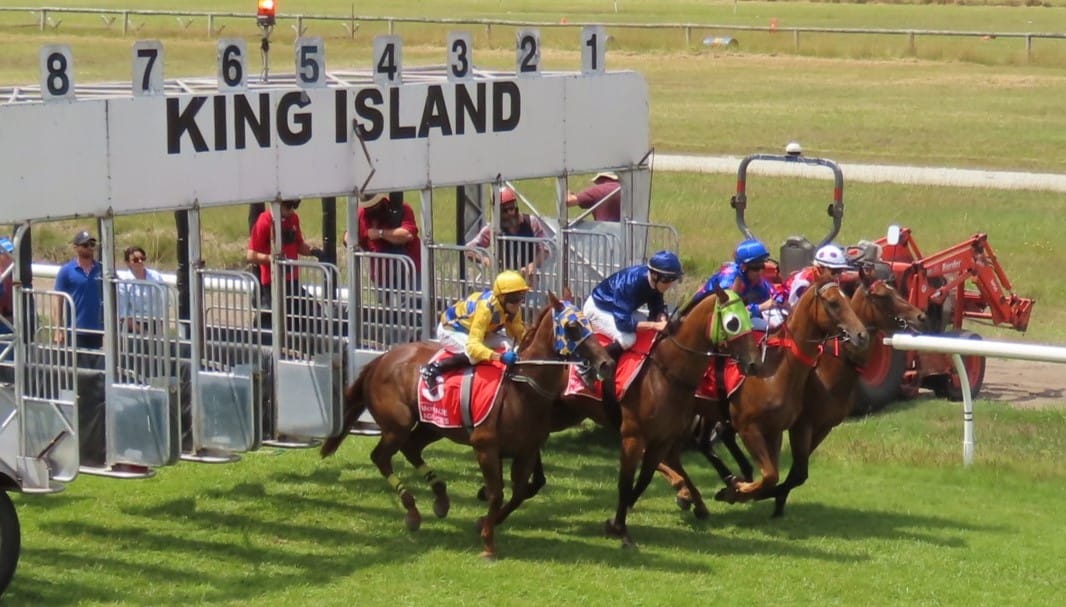
In its 133-year existence, the King Island Racing Club has provided a quaint outlet for Australian summer racing on the western entrance to Bass Strait, home to about 1600 people.
The island’s horse population is small and the training ranks are thin but the enthusiasts behind racing are as committed as ever to ensuring the industry survives.
As King Island prepares to stage its final meeting of a season that traditionally opens at the start of summer and closes in late January, club president Audrey Hamer isn’t sure if the last rites will be delivered on Saturday.
She is optimistic. But just like Roaring Forties, the gales that tear through Bass Strait and sweep across the rich pastures of King Island, the headwinds are getting stronger for racing in her part of the world.
It’s not the first time King Island racing has been in survival mode.
For the previous two years, Henry Dwyer and fellow trainers from Ballarat in Victoria had put their heads together, sent horses from the mainland and provided sponsorship.
Their initiative created a sentiment of goodwill and attracted the interest of high-profile media figures such as Bruce McAvaney.
But the halo effect has diminished to the point where Damien Oliver, a guest at the club’s meeting last week, left offering to do more.
“Damien told us he wants to help whatever way he can,” Hamer told The Straight.
As the race club’s first female president, Hamer has been at the helm for the past decade. Along with her husband Wayne, she runs the King Island Bakehouse and King Island Stockfeeds and Rural Supplies.
Typifying her devotion, she used to be responsible for clerk of the course duties, but like most of the island’s racing folk, she isn’t getting any younger.
“Not many of the younger generation want to step up and volunteer their time,” she says.
“We need the people on the ground to help the trainers that are here. They're all getting a bit older and we all work.
“The younger people on the island are not showing the interest or they didn’t grow up here with the horses.
“I'll always say it'd be great if there'd be some young ones or newbies to the island that would help continue the past 133 years of volunteer racing here.
“Since I’ve been involved the support from TasRacing has been valued but we wouldn’t have been able to continue without our volunteer trainers and I’m so grateful that.”
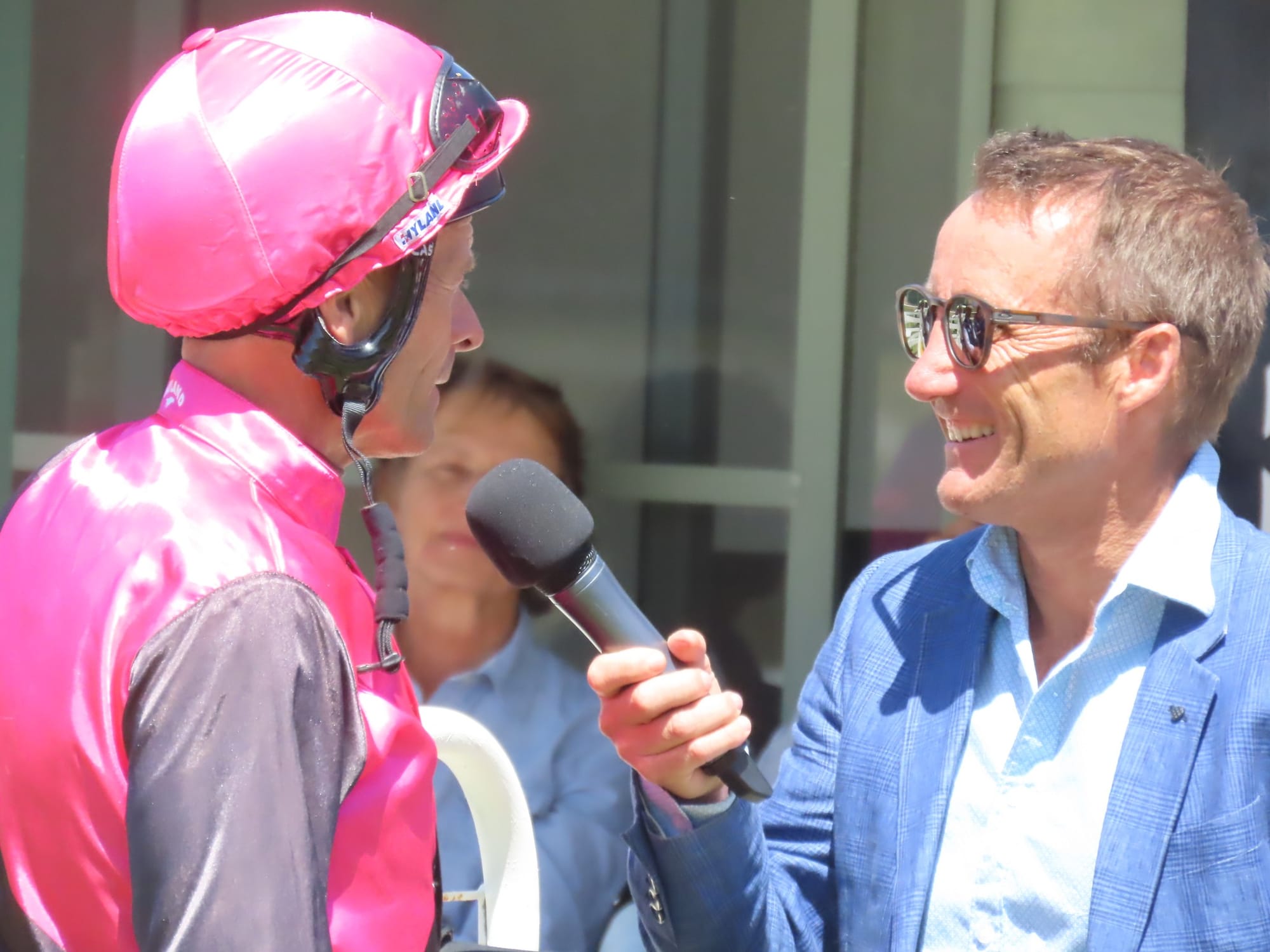
Tony ‘Tubba” Williams and Bill Hayes aren’t exactly a part of racing’s next gen but Hamer says they have made a significant contribution to a King Island racing season that has attracted strong crowds and $70,000 in sponsorship from local and Tasmanian businesses.
King Island is the latest grassroots destination for Williams in an Australian-wide tour of racing’s outposts.
One of racing’s best-known figures in bloodstock circles, Williams has been helping Hayes keep a team of horses up to the mark during their island stay.
He arrived by camper van as Hayes put eight horses on his float and made the trip from central west NSW.
Hayes will know after Saturday’s meeting if he breaks even on the excursion but Hamer says King Island needs trainers of that ilk and others who have a sense of adventure like his offsider.
“You've got to get people like Bill Hayes who just don't mind camping, roughing it and fitting in with the community,” she says.
“He loves it here. But it's a lot of commitment for them to come and live here for the three months.”
A meeting with TasRacing officials in February could well decide racing’s future on King Island.
Financially, the club can continue to race, but Hamer concedes that a King Island season may look different from its current form.
There is a plan. A destination event to capitalise on the island’s popularity as a magnet for holidaying tourists.
“The younger people on the island are not showing the interest or they didn’t grow up here with the horses" - King Island Racing Club Audrey Hamer
Just as Birdsville brings racing to life for two days of the year on the edge of the Simpson Desert, Hamer says King Island can do the same off the coast of Tasmania.
“Logistically, it would be tough and you've still got to get people to work it, but we could possibly have something like Birdsville,” she said.
“Just have one big race day or maybe two weekends so we still have something on King Island when there's so many visitors here.”

